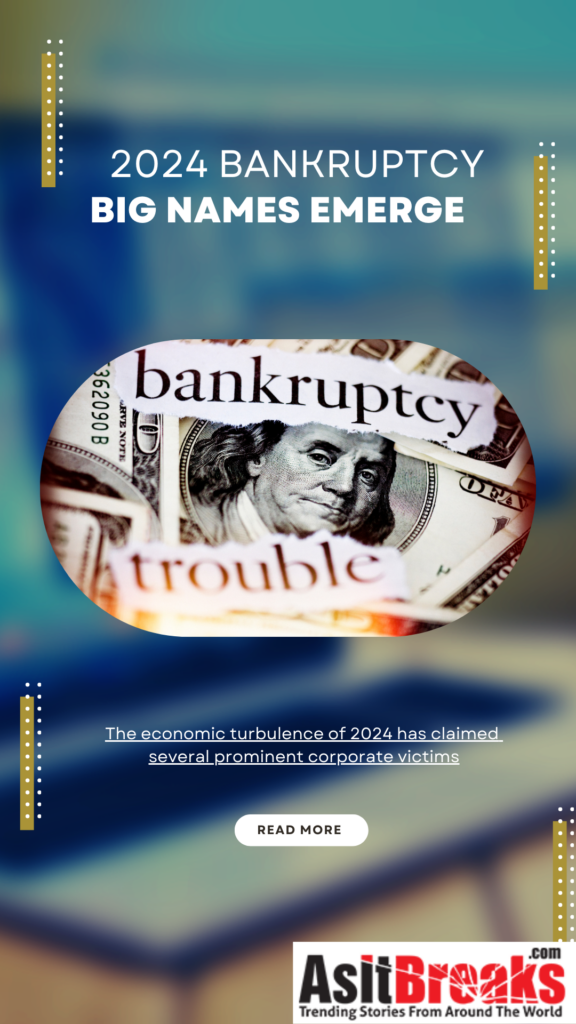The economic turbulence of 2024 has claimed several prominent corporate victims, with at least 19 companies filing for bankruptcy protection, resulting in approximately 14,000 job losses according to Challenger, Gray & Christmas. The retail sector has been particularly hard hit, with store closures increasing 69% year-over-year through November, totaling more than 7,100 locations.
Among the most significant bankruptcies:
In the retail sector, Big Lots announced the closure of all 963 locations after a failed private equity deal, while Express shuttered nearly 100 stores before being acquired by WHP Global. Joann, the 81-year-old craft retailer, managed to keep its 850 stores operational through privatization, while Party City faces complete liquidation of its approximately 700 stores.
The home improvement industry saw casualties with LL Flooring (formerly Lumber Liquidators) finding salvation through private equity after initially planning to close all 94 locations, while True Value’s 75-year legacy ended with a sale to a competitor.
In the food and beverage sector, Red Lobster emerged from bankruptcy under new ownership after closing over 100 locations, while TGI Fridays entered Chapter 11 citing pandemic-related challenges. Spirit Airlines sought bankruptcy protection amid mounting losses and competitive pressures, while Stoli Group USA’s filing followed operational disruptions from a cyberattack.
Notable consumer brands weren’t spared either. Bowflex, the fitness equipment manufacturer, found new life through a $37.5 million acquisition by a Taiwanese company, while Tupperware’s brand assets were purchased by private equity investors aiming to revitalize the historic container maker.
These bankruptcies reflect broader economic challenges, including persistent inflation, changing consumer habits, and the end of pandemic-era spending patterns. However, many of these companies have used Chapter 11 as a tool for restructuring rather than complete dissolution, emerging with reduced debt and streamlined operations.


